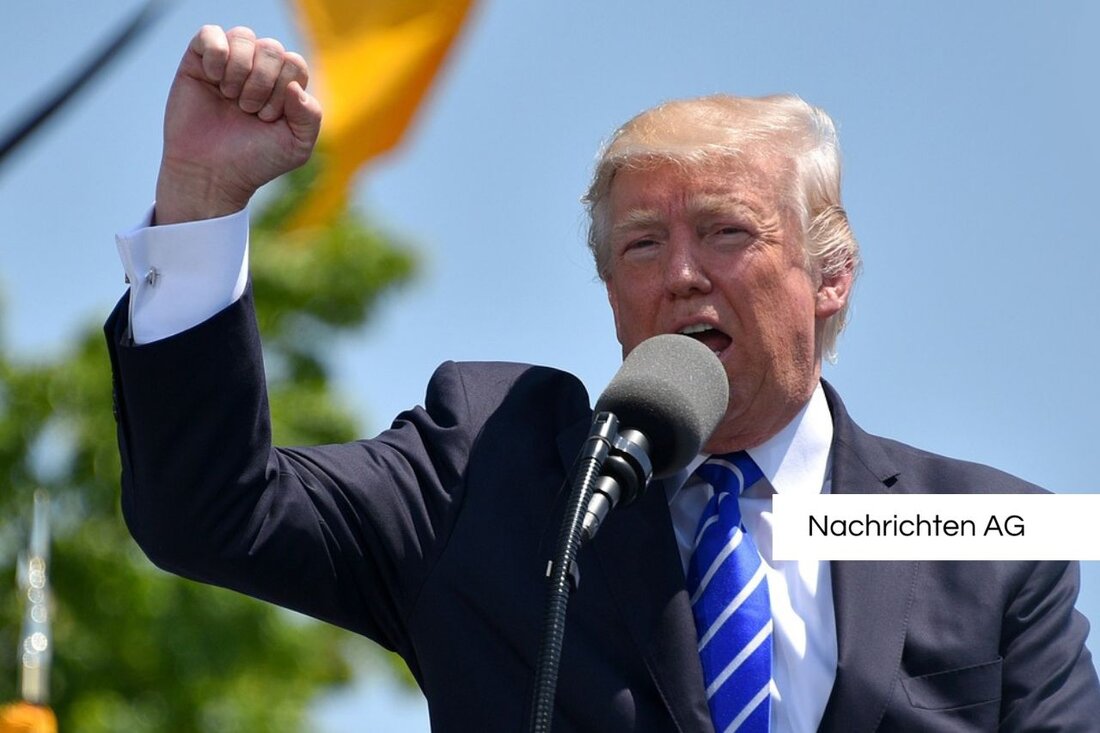Trade policy in focus: USA, China and EU facing new escalation!
On June 18, 2025, experts at the Viadrina Institute discussed trade policy and the challenges between the USA, China and the EU.

Trade policy in focus: USA, China and EU facing new escalation!
The “Present Analysis at Lunchtime” event at the Viadrina Institute for European Studies (IFES) took place on June 18, 2025. The speakers for the discussion were Prof. Dr. Jürgen Neyer and Prof. Dr. Sascha Münnich, while Dr. Sandra Priebus served as moderator. The topic of the discussion revolved around the trade policy escalation between the USA, China and the EU. In this context, the challenges of international trade were debated in depth.
A central theme was criticism of US President Donald Trump's protectionist measures. Münnich said that these measures are often criticized one-sidedly without sufficiently shedding light on the economic circumstances. He argued that protectionism can make sense in certain areas of the economy. Trump himself has promised to bring manufacturing back to the American Midwest, but that push is complicated by layoffs in the administrative staff responsible for this economic transformation.
Structures and challenges in international trade
In his presentation, Jürgen Neyer highlighted three important population groups in the USA: firstly, the well-off academics, secondly, well-educated workers who, however, face competition from countries such as India and Pakistan, and thirdly, the so-called “working poor”, who are economically disadvantaged and have no rational reason to choose liberal positions. According to Neyer, free trade only works if the negative effects on these groups are compensated for.
Neyer also warned of a possible conflict between economic blocs if Europe does not work together. He noted that environmental issues and social standards are increasingly taking a back seat in the current debate. This could threaten the credibility of liberalism, whose grand narratives may need to fundamentally change.
Münnich added that it is necessary to ensure a well-organized distribution of resources without falling into nationalism. In his view, the overarching goal should be to celebrate cultural differences and preserve democracies in the affected countries.
Theoretical foundations and historical contexts
The discussion about international trade relations is also based on profound theoretical insights that go back to the 18th century. Various factors lead to the reality of unavailability of goods, which favors international exchange. Adam Smith and David Ricardo laid the foundations for specialization and international trade in the 18th and 19th centuries that are still relevant today. Ricardo developed the concept of comparative cost advantage, which continues to form the basis of many economic decisions.
Trade between countries can be influenced by a variety of factors, including differences in soil conditions, availability of raw materials and business location factors. Historically, there have been repeated alternations between phases of free trade and protectionism, with institutions such as the WTO and GATT playing a significant role in trade liberalization.
Although free trade brings with it numerous advantages such as competition and innovation dynamics, there are also strong arguments for protectionism, including to protect against unfair competition. The debates about regulation and trade barriers are therefore crucial.
Regulations and effects within the WTO
Another aspect addressed by Münnich and Neyer concerns the legal framework for commercial practices. The World Trade Organization (WTO), since its founding in 1995, has been committed to reducing trade barriers and ensuring that member states comply with certain legal requirements. Tariff increases are only permitted under certain conditions, with Article XIX of the GATT allowing safeguards against imports if a significant increase results in serious harm.
In addition, violations of international trade regulations are a sensitive issue, as states often respond with retaliatory tariffs. These often represent compensatory measures should they violate the principles of most-favoured-nation treatment.
The discussion surrounding the trade policy strategies of the USA, China and the EU highlights the complexity and far-reaching consequences that international relations and trade competition have in both economic and social terms. Given these challenges, closer cooperation at international level is essential to actively shape change and maintain dialogue between trading nations.
For further details on the discussion of international trade relations, you can refer to the comprehensive information provided by European University Viadrina, bpb and GTAI can be viewed.

 Suche
Suche
 Mein Konto
Mein Konto